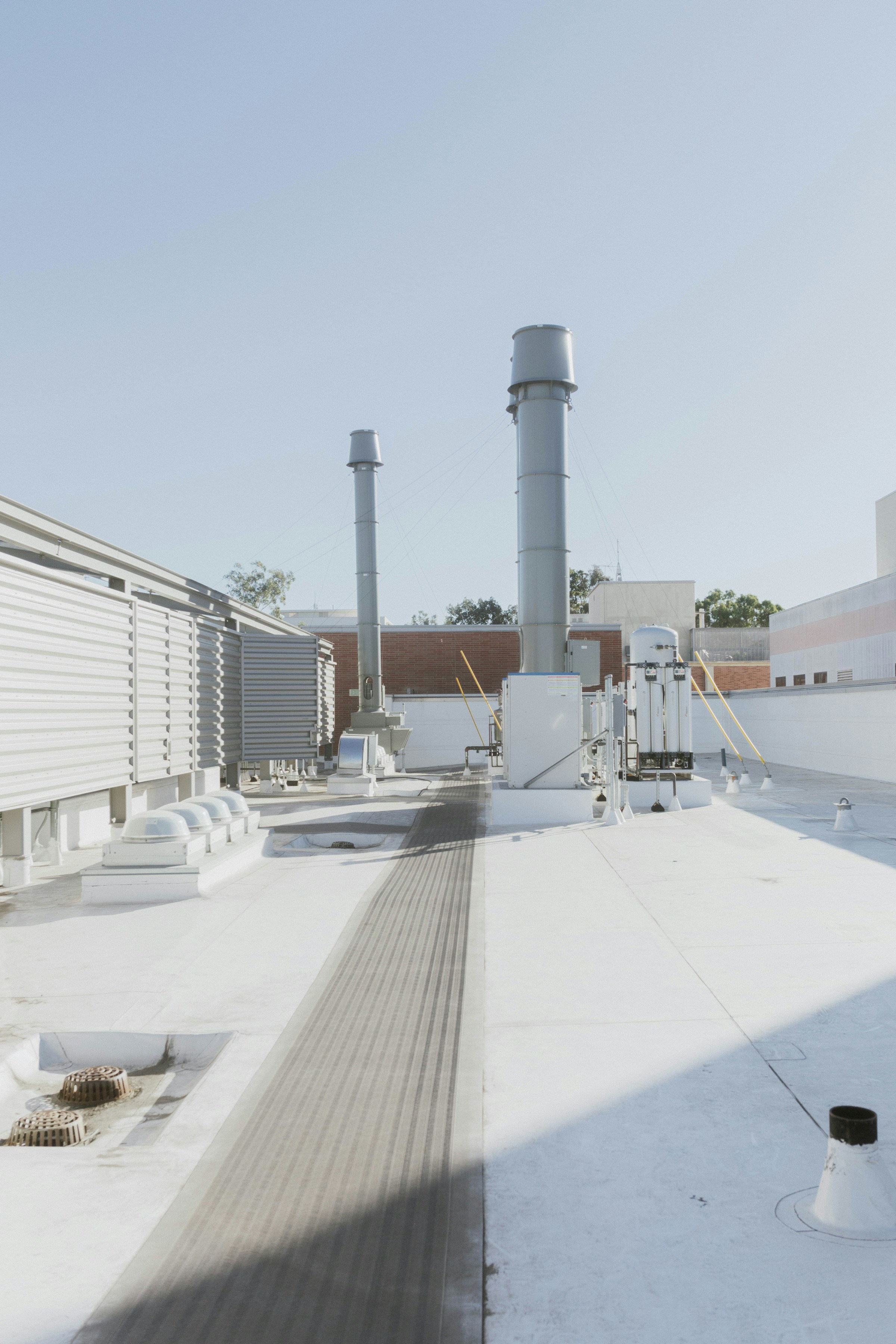A new technical brief from SPRI, the trade association representing the manufacturers of single-ply roofing systems and related component materials, addresses construction-generated moisture and its impact on commercial roofing systems.
Construction-generated moisture comes from activities including pouring concrete, burning propane heaters, painting, plastering, and drywall finishing. These activities can contribute to excessive levels of relative humidity inside the structure when proper remediation measures are not taken. Accumulation of condensation within the roofing assembly and within the structure can result when the temperature is at or below the dew point.
To control moisture, designers must identify the sources of moisture and develop a remediation plan during the design process. To reduce the probability of condensation, buildings under construction must be adequately ventilated, particularly during concrete hydration and other high moisture-related construction activities.
SPRI recommendations include avoiding the use of wet materials or materials with excessive moisture, installing vapor retarders in the roof assembly, avoiding penetrating vapor barriers, installing at least two layers of insulation, and always sealing deck-to-wall joints and gaps around roof penetrations.
Related Stories
| Aug 2, 2013
Netherlands Institute of Ecology built to zero waste principles
The Netherlands Institute of Ecology was designed and built to be the most sustainable building in Holland and incorporate the zero waste principles of Cradle-to-Cradle design.
| Aug 2, 2013
Threat of more powerful coastal storms could curtail development
Led by Stanford University’s Natural Capital Project, researchers mapped the intensity of hazards posed to communities living along America’s coastlines from rising seas and ferocious storms now and in the decades to come.
| Jul 26, 2013
AGC launches new coalition to help bring tax relief to construction sector
Associated General Contractor of America (AGC) has launched the Coalition for Fair Effective Tax Rates to bring tax relief to the construction sector.
| Jul 26, 2013
Legislation would revamp federal contracting policy impacting small design and construction firms
Legislation was introduced in the U.S. House of Representative this month to ban reverse auctions when an agency determines small businesses are qualified to bid on the solicitation.
| Jul 26, 2013
Detroit’s problems may make blue infrastructure codes more likely
The City of Detroit’s financial problems may make it more likely to adopt blue infrastructure standards.
| Jul 26, 2013
Cities should reconsider rooming houses to build affordable housing stock, says expert
Building codes have effectively outlawed the bottom end of the private housing market, driving up rents on everything above it, argues the Sightline Institute's Alan Durning.
| Jul 17, 2013
WorldGBC, IFC pledge to rapidly scale up green construction in emerging markets
IFC, a member of the World Bank Group, and the World Green Building Council (WorldGBC) are collaborating to rapidly scale up the construction of green buildings in emerging markets.
| Jul 17, 2013
Louisiana governor signs $250 million bill for 29 community college projects
Louisiana Gov. Bobby Jindal signed into law this month a bill that provides $251.6 million for 29 projects at Louisiana Community and Technical College campuses.
| Jul 17, 2013
U.S. House continues to block enforcement of light bulb standards
The House of Representatives last week voted to block the enforcement of light bulb standards that many say would effectively force people to buy more expensive compact fluorescent bulbs.
| Jul 17, 2013
Should city parking space requirements be abolished?
Some cities are deliberately discouraging construction of new parking spaces by allowing the construction of buildings with a lower ratio of parking spaces to dwellings (as low as 0.75 spaces per residence).













